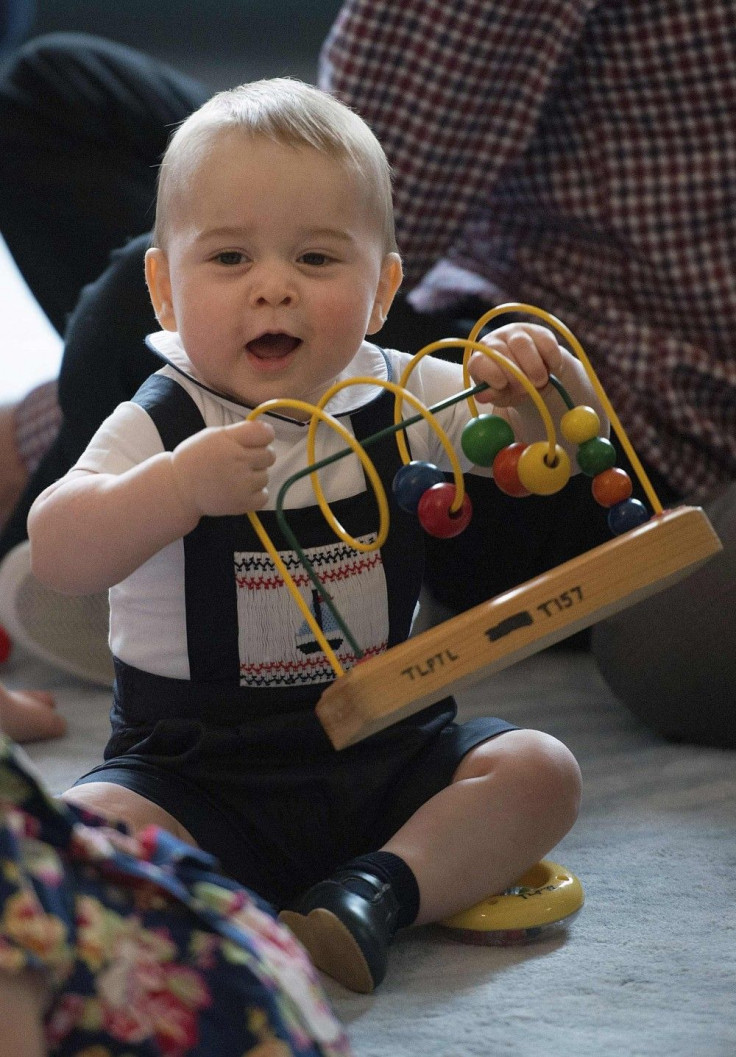Prince George’s Photoshopped Pic On British Magazine Raises Ethics Row In New Zealand

Prince George’s playdate picture was Photoshopped for a British magazine, and the photographer isn’t crazy about it. Prince William and Kate Middleton’s eight-month-old heir’s own image was unaltered, but the toy that he was holding was, raising the question of ethics of amending another’s work.
On Wednesday, the chubby prince met several kids his age during a playdate set at the Government House in Wellington, New Zealand. One of the photos taken sees George holding a bead frame wooden toy with an inscription that identifies it as part of the Tawa-Linden Plunket Toy Library.
The photo was published in both local and international publications as it is, but when the British magazine Majesty ran it, the inscription was missing.
Majesty Magazine previewed the cover for its May 2014 issue on its Facebook page, in which the said photo was featured. However, the handwritten inscription “TLPTL T157,” including a crossed-out text, was Photoshopped out.
There is no caption informing readers that the image has been digitally altered.
Mr Melville was baffled why the magazine removed the inscription because it “didn’t really distract from the photo.”
He told the New Zealand Herald that altering a photo and not adding a caption to indicate is a serious matter. He would be raising the issue with the AFP.
“You can crop, adjust levels [of brightness, contrast and colour-correction], but you cannot add or take away anything that’s in the original photograph,” he told the Herald.
“Agencies take a very dim view if clients download their photos and then alter them.”
Mr Melville took the image on a pool basis, said Richard Brooks, the AFP deputy photo direction for Asia Pacific. It means that the photo was distributed to other agencies in New Zealand, Australia, and beyond, and the agencies are then free to pass it on to their clients. Majesty might have received the photo from one of those agencies.
Mr Brooks said that AFP did not give permission to the agencies to have the image digitally altered in any form outside the normal and accepted standards of colour adjustment and cropping.





















